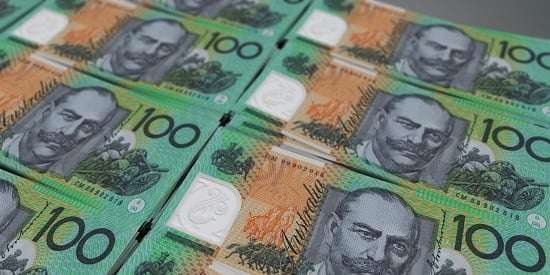Could a sharia-compliant bond help fund our green energy transition?
Media release
A sharia-compliant Islamic bond could offer a solution to encourage much-needed foreign investment in green energy projects as Australia works quickly to meet sustainability targets, according to a Deakin University Department of Finance academic.
Dr Sohel Azad, an Islamic finance expert in Deakin Business School, said selling the bonds – known as 'sukuk' – on the Australian Securities Exchange (ASX) could be an innovative solution to bring investment certainty back to the energy market and fund ambitious projects like large-scale batteries.
Australia is no stranger to Islamic finance. There are several non-bank lenders who offer sharia-compliant home loans, NAB started offering the country's first 'halal' business loan last year, and recently Australia's first Islamic bank receive a restricted banking licence with plans to open to customers next year. Yet the investment side of the market remains untapped.
Despite an increase in bi-lateral relations between Australia and several Islamic nations in recent years, and its own growing Muslim community, Australia is the only western country in the world with no government or corporate backed sukuk market.
"Sukuk has already been introduced in many international markets and Australia must be quick to take advantage of the opportunities," Dr Azad said.
"Public pressure to develop large-scale, high-cost, renewable energy infrastructure is huge. Australia has a bold plan to transform its energy market. Prime Minister Anthony Albanese plans to legislate ambitious carbon reduction targets, including net-zero by 2050, and the need to strengthen energy generation capabilities has only been exacerbated by the current gas crisis.
"But we simply don't have the public or private funds in Australia to deliver some of these ambitious projects. By selling sukuk on the ASX, and cross listing in other exchanges overseas, the government and corporates can attract more foreign investment in renewable energy projects.
"There is a massive untapped demand from Islamic investors for sustainable investment opportunities like this that are sharia compliant, and Islamic finance firms are particularly interested in investing in projects that address the United Nation's Sustainable Development Goals."
Islamic finance is almost a $3 trillion industry worldwide, largely fuelled by the expansion of sukuk markets. Sukuk issuance has grown exponentially in the last decade, since being introduced in the Middle East, Malaysia, Indonesia, Hong Kong and Japan, with the market also rapidly expanding into Europe and the US.
A key tenet of Islamic finance is the absence of 'interest', as most practicing Muslims believe charging or receiving interest is forbidden by their religion.
Unlike a conventional bond which pays a set amount of interest, sukuk are a type of investment certificate backed by real-world assets, where investors receive a cut of profits gained through sales and trade. They are structured to avoid high degrees of leverage and speculation, and therefore promote a sounder financial system.
In issuing sukuk, governments or corporations must list an asset as security. Other countries have used large public assets like ports to back sovereign sukuk programs. The idea is that the infrastructure funded by the Islamic bonds eventually generates enough profits to reimburse the investor the agreed amount.
Sukuk can only be used on ethical investments, not things that are considered haram – forbidden by Islam – for example gambling, alcohol, tobacco, or arms manufacture. This makes it a natural fit for funding green energy projects and a desirable financial product for ethically conscious investors, as well as Islamic investors.
Dr Azad said Australia's historical reticence to move into the sukuk market may be due to an unfamiliarity or discomfort with Islamic finance, in part driven by Islamophobia.
But he said that with Chinese investment on the wane – a market on which Australia has relied in recent years – Islamic finance could offer a way to bridge that gap, and there were many experts to help guide the transition.
"The Australian government could recruit an international bank with experience issuing sukuk to provide advice on developing a sharia-compliant product, and minimal regulatory change would be needed to permit this new type of investment in the Australian market," Dr Azad said.
"Key considerations will need to be ensuring that this product is developed in both a financially sound manner, but also in a way that ensures it meets strict religious requirements, and that it is audited regularly to ensure it continues to do so."

